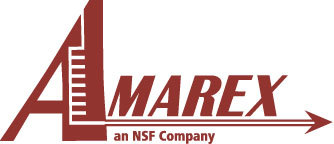- Home
- News and Resources
- Resources
- Expertise and Communication Support for Complex Innovative Trial Design (CID) Success
Expertise and Communication Support for Complex Innovative Trial Design (CID) Success
Complex disease conditions or rare diseases often require novel treatments, but the traditional drug development pathway proves slow for many of these therapies — 12 years on average — leaving sponsors frustrated by delays and patients waiting for new options.1 To help reduce this timeline and support more efficient drug development, the U.S. Food and Drug Administration (FDA) released its guidance for Interacting with the FDA on Complex Innovative Trial Designs for Drugs and Biologics Products. This guidance, however, places much of the onus on sponsors themselves, as the definition of CID remains fairly broad: “Although CID has been considered to refer to complex adaptive, Bayesian, and other novel clinical trial designs, there is no fixed definition of CID because what is considered innovative or novel can change over time.”2
Thanks in part to this evolving definition, the CID pathway offers hope for sponsors and patients alike. Sponsors may design new trials in innovative ways to help reduce development timelines while maintaining the integrity of the trial, using fewer resources and gathering better, more comprehensive data. This also means clinical trial expertise is more important than ever. CIDs can provide the most optimal study design benefits to both patients and drug development. Clinical trial expertise beyond traditional pathways helps highly innovative trial designs, and familiarity with FDA communications and pathways becomes invaluable when seeking approval.
Trial Design, Attributes Affect FDA Communications
When pursuing a CID, sponsors should be prepared to clearly justify the reasoning behind their innovative design and analysis, such as adaptive trial design, Bayesian and master protocol. In addition, the sponsor should ensure that there is sufficient clinical information to support CIDs. From adaptive designs to seamless multiphase studies to trials evaluating multiple treatments for one indication, one treatment for multiple indications or multiple treatments for multiple indications, there are several approaches to CIDs, and justification will vary accordingly. Regardless of structure, the FDA recommends following existing pathways for regulatory interactions when setting CID meetings; the ideal meeting type, however, will depend largely on the type of CID trial, the phase of the trial and the elements that must be reviewed.
Sponsors must clearly identify all facets of the trial and delineate this information within the meeting package to ensure that adequate time is requested. The need for extended review times, depending on the trial design, must be considered when establishing timeline and resources. Some aspects, such as complex simulations, may require lengthier reviews and should therefore be provided as early as possible to the review team. Failing to identify these unique elements in your meeting package or to allow adequate time for FDA review can lead to delays, reducing the time-saving appeal of a CID.
Sponsors who have a pre-IND or an IND number, are not planning for a first-in-human study, and are looking for added guidance from regulators may also consider the FDA CID Pilot Program, a joint effort between the Center for Drug Evaluation and Research (CDER) and the Center for Biologics Evaluation and Research (CBER), which remains open to submissions until June 30, 2022.3 This program offers sponsors the opportunity to have additional meetings with the FDA and receive detailed feedback from review teams and senior regulatory decision-makers.2 These meetings can prove valuable for identifying potential design issues early in the process, but the program also adds additional planning time. Although these meetings remain valuable regardless of the time required, leveraging CID expertise as early as possible in the design stage of your clinical trial reduces the need for additional FDA meetings and improves the effectiveness of your design.
Preparing for Success From the Beginning
Several elements are common to all CID proposals, but the specific type of CID and the individual trial may necessitate additional requirements. Justifying the reason for the novel approach is foundational, and from there, sponsors must also highlight specific statistical considerations, methods for maintaining trial integrity (similar to adaptive clinical trials), and an overview of any simulations that will be necessary or will be used in the trial.
FDA guidelines address several elements that encourage a productive meeting between the sponsor and the FDA, but the list is far from comprehensive, leaving sponsors to identify and fill in any gaps that may exist in their unique proposal and are more relevant to their trial design. The elements that should be included/expanded upon in a proposal must be identified on a case-by-case basis, as CIDs are ever evolving. Experienced researchers — those who understand both the complexities of trial design and the work required to seamlessly execute innovative trials — prove invaluable. From guiding proposal development to helping you assess the feasibility and readiness of your design before initiating FDA involvement, experienced researchers help you move forward with increased confidence.
Amarex has been helping sponsors with innovative clinical trial designs, analyses and simulations, including adaptive trial design, master protocol for oncology and COVID-19, and Bayesian analysis, for decades. Along with designing the most optimal trial for your unique needs, we understand how to work collaboratively with sponsors and ensure that your design strategy meets all necessary requirements. The aim is to reduce timelines and, ultimately, create a shorter path to regulatory submissions. None of this is to say that CIDs are simple, but we work to make them feel a bit less complex and more relevant to your trial and to ensure the integrity of your trial design.
References
- www.nature.com/articles/s41416-019-0653-9
- www.fda.gov/regulatory-information/search-fda-guidance-documents/interacting-fda-complex-innovative-trial-designs-drugs-and-biological-products
- www.fda.gov/drugs/development-resources/complex-innovative-trial-design-pilot-meeting-program
